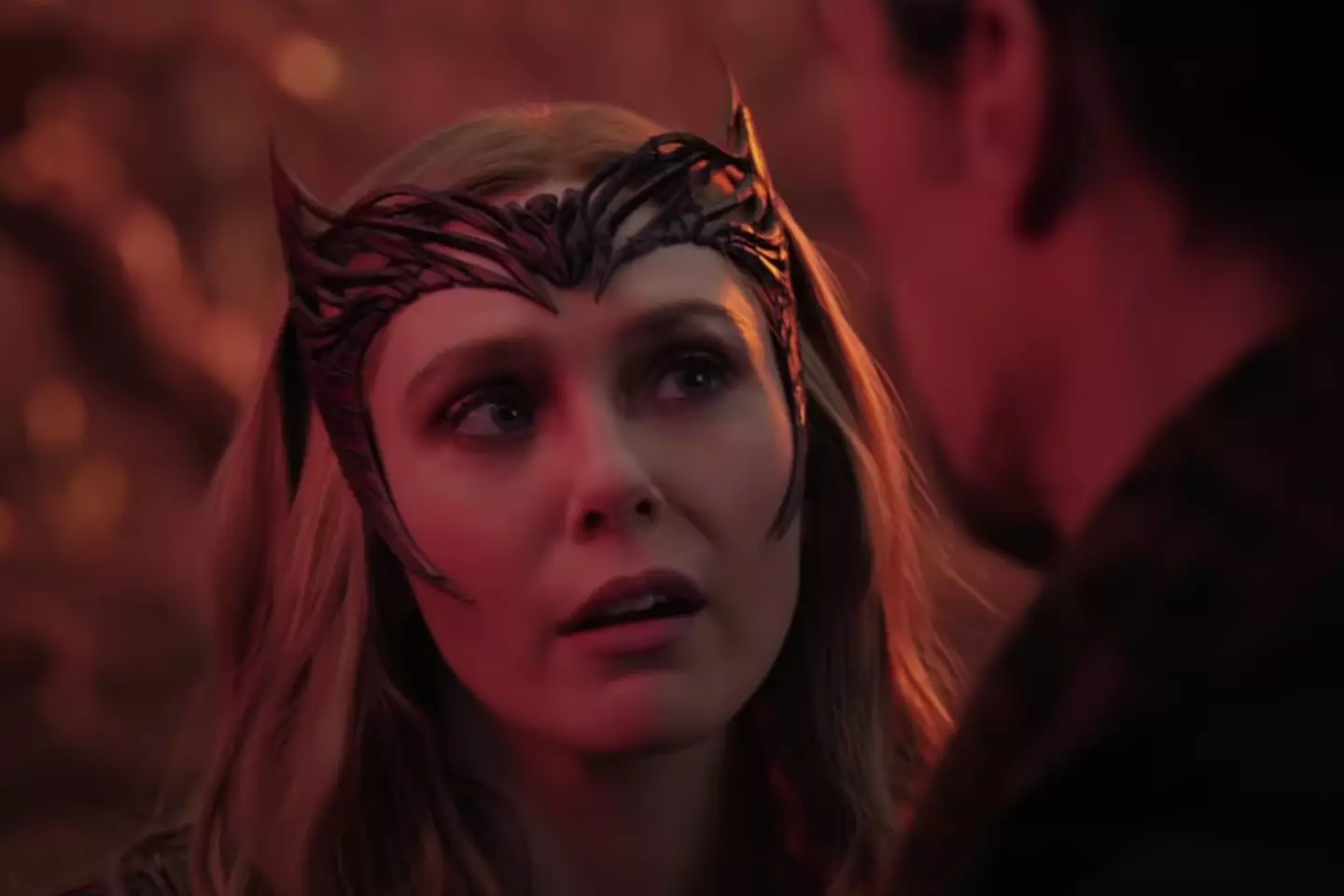
Huge spoilers for Doctor Strange In The Multiverse Of Madness follow - you’ve been warned!
I liked Doctor Strange In The Multiverse Of Madness a lot more than I thought I would, I have to admit.
Director Sam Raimi, returning to superhero cinema some 15 years after Spider-Man 3 ended the Tobey Maguire trilogy with a squelchy fart, was able to inject his MCU debut with his trademark brand of horror and a healthy - if surprising - dollop of gore. It’s chaotic, bloody, and far from perfect - but otherwise a solid sequel to 2016’s Doctor Strange that pushes the constantly evolving Marvel universe (multiverse, now) in a wild new direction.
Unfortunately it also completely fails its central character, and one of the MCU’s most complex and tragic figures.
Advert
Elizabeth Olsen’s Wanda Maximoff has long been the MVP of the Avengers, both in terms of her in-universe powers and her IRL ability to act the shit out of literally anything she’s given. In what I think amounts to maybe 20 minutes across two movies, she makes us truly, unequivocally believe that she’s fallen in love with a synthetic lifeform, giving us a totally engaging romance with Paul Bettany's Vision. That’s a fraction of the time Chris Hemsworth and Natalie Portman had to convince us they were a good couple.
We feel Wanda’s pain when she’s forced to watch Vision die (having already killed him once) and we shudder at her wrath as she begins to tear Thanos apart for what he did to her. This is someone with a terrifying amount of power that has been through an unbelievable amount of trauma in the space of just a few years. What happens when someone like that loses control?
That’s a question that 2021’s WandaVision answered beautifully. Marvel’s first Disney Plus series was a thoughtful, gut-wrenching examination of loss and grief, at the centre of which was a powerhouse performance from Olsen. Over the course of the series we see her slowly realising that she’s taken an entire town of innocent people hostage. We see her struggle to come to terms with what she’s done, even attempt to justify it to herself before finally setting things right - at huge cost to herself.
The show’s final episode has Wanda, now fully powered up as the Scarlet Witch, pay the ultimate price, sacrificing her (fictional to the world but very real to her) husband and children to give the people of Westview their freedom back in an effort to even begin to make amends. It’s heartbreaking stuff, to be sure, but WandaVision’s closing moments suggest our hero hasn’t quite given up on being reunited with her children: using her newfound powers as the Scarlet Witch, she begins to search the multiverse for them. Because grief never truly goes away, and we never stop hoping. Life isn’t that easy.

To me, this was setting the stage for a fascinating and deeply emotional conflict in Doctor Strange In The Multiverse Of Madness. Trailers suggested that Wanda would be joining Strange on his journey through the multiverse, and you’d have been a fool not to assume her desire to see her kids again wouldn’t put her on a collision course with Strange.
Advert
But I thought this would be a climatic showdown that the movie had earned, demonstrating the same nuance and character growth for Wanda that we’d seen in her own series. Nope.
Within the first 20 minutes of Multiverse Of Madness, Wanda is just evil. Like, full-on evil. She’s massacring the good guys and getting ready to murder a literal child without a second thought, as if the only part of WandaVision that had actually happened to Wanda was the birth of her kids, and not the well-written and beautifully flesh out emotional journey.
Don’t get me wrong, I loved getting to see Olsen go full-on horror movie villain and brutally murder some of the most long-awaited cameos in the MCU (RIP Reed Richards). But the gulf between the repentant Wanda we see at the end of WandaVision and the Wanda in Multiverse Of Madness is too jarring. There are only so many variants of the line “I’m not a monster, I’m a mother” I can hear.
Yes, Wanda has been “corrupted” by the Darkhold. I get that. But that’s still a crappy way to treat one of the most complex and tragic figures in the MCU, completely robbing them of their agency so they can become a multiversal murder mum that’s completely devoid of any of her well established humanity until the movie needs her to remember she’s a good guy.
Advert
Perhaps what's most baffling about all of this is literally a movie about the multiverse. If Marvel wanted a terrifying supervillain Wanda who relentlessly chases the good guys through multiple realities while killing loads of people, they could have plucked one from an infinite number of worlds! Not only would this approach not have wiped its bum on our Wanda's emotional journey through WandaVision, it also would've given the "616" Wanda more of a chance to reckon with her actions and desires, to be faced with the worst possible version of herself and come out the other side changed by the experience. What might have been.
I thought the "point" of Disney Plus was to help give a little more breathing room to some of these characters. To help make their journeys make just a little more sense in the grand scheme of the MCU. As far as Multiverse Of Madness is concerned, WandaVision might as well not have happened. Disney Plus subscribers will be peeved that so much character work is abandoned, while the casual viewer will be wondering what the hell a Westview is. Nobody wins, and Wanda? Wanda deserved so much better.
Featured Image Credit: Marvel StudiosTopics: Marvel, TV And Film
